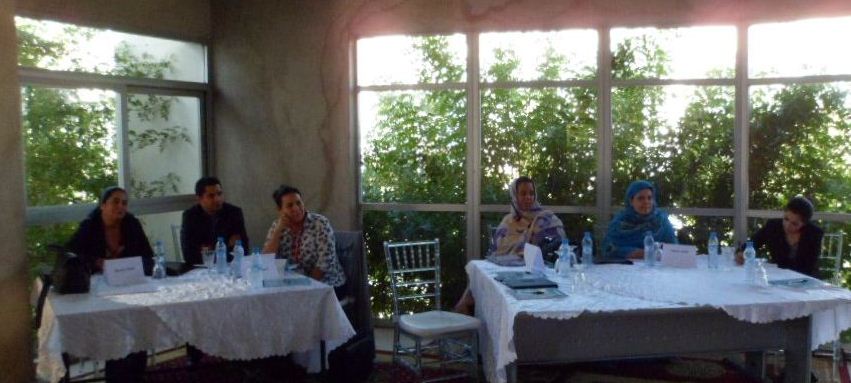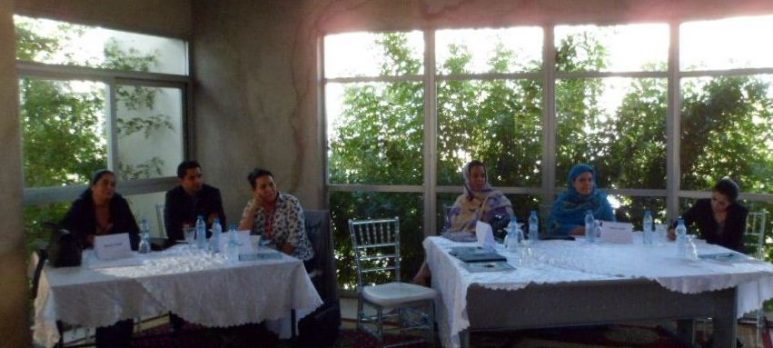Dates: 11- 16 October 2012
Region: Casablanca, Morocco
By Milica Pesic

 Imagine you are running a live show. An elderly lady calls to talk about her life experience in living with people of religion different from hers. When referring to her next door neighbors she uses a derogatory term for their religious groups.
Imagine you are running a live show. An elderly lady calls to talk about her life experience in living with people of religion different from hers. When referring to her next door neighbors she uses a derogatory term for their religious groups.
What do you do? Cut her off? Worn her the expression is derogatory? Apologize to your listeners explaining your station respects professional ethical code thus the caller should respect it and avoid derogatory words? Do nothing since it’s not you, but a member of the public who used it?
This is one of the ethical problems that 9 reporters from different regions around Morocco, grappled with on a 5 day Inclusive Journalism course in Casablanca, organized jointly by SNRT, Moroccan public radio and the Media Diversity Institute.
Opening the course, Director of the Radio, Mr Abdellatif Lambaraa, welcomed the cooperation between SNRT and MDI and confirmed the full commitment by Moroccan Public Broadcaster to the principles of inclusion and diversity.
 MDI Executive Director, Milica Pesic, complimented the SNRT for their engagement in bringing the voices of all Moroccans to their programmes, and their devotion to freedom of expression and right to equality.
MDI Executive Director, Milica Pesic, complimented the SNRT for their engagement in bringing the voices of all Moroccans to their programmes, and their devotion to freedom of expression and right to equality.
“MDI respects constitutional, political, social and cultural context of Morocco and hopes that recent constitutional changes will further open the doors for cohesive and inclusive processes which have been happening in Morocco over the last several years”, said Pesic.
At the training the reporters discussed the foundations of ethical behaviour for journalists – accuracy, fairness, balance, sensitivity, inclusion and public interest – and how ethics can be put into practice in busy newsrooms.
The training also helped the participants develop their understanding of diversity in Morocco and improve their professional skills so that all sections of society have the chance to be heard and contribute to public debate.
 The inter-active exercises and debates at the course were followed by the practical work – production of 18 3-minutes audio vignettes, each a personal story by an ordinary person – a single mother, a disabled teenager or a street vendor – and their views on how Moroccan media could help them.
The inter-active exercises and debates at the course were followed by the practical work – production of 18 3-minutes audio vignettes, each a personal story by an ordinary person – a single mother, a disabled teenager or a street vendor – and their views on how Moroccan media could help them.
The practical work was a preparation for the production of 40 vignettes to be aired either on Morocan Public Radio as stand alone pieces, or part of news bulletins, talk shows or documentary programmes.
The course was organised within the framework of the Media Diversity Institute’s 2 year project ‘Media Evolution: Towards an Inclusive, Responsible & Independent Media in Morocco’, supported by the European Union Delegation, and UK & Swiss Embassies in Rabat.
The objectives of the project are to encourage a public debate on the future of the Moroccan media, ensure greater coverage of social diversity in the media, improve freedom of expression and access to information, ensure greater responsibility by the media through self-regulation, and improve respect of media freedom by the government.
For more information contact
![]()
